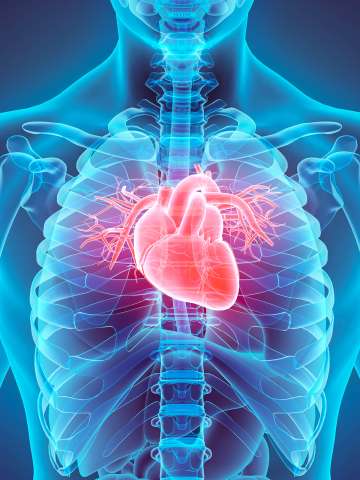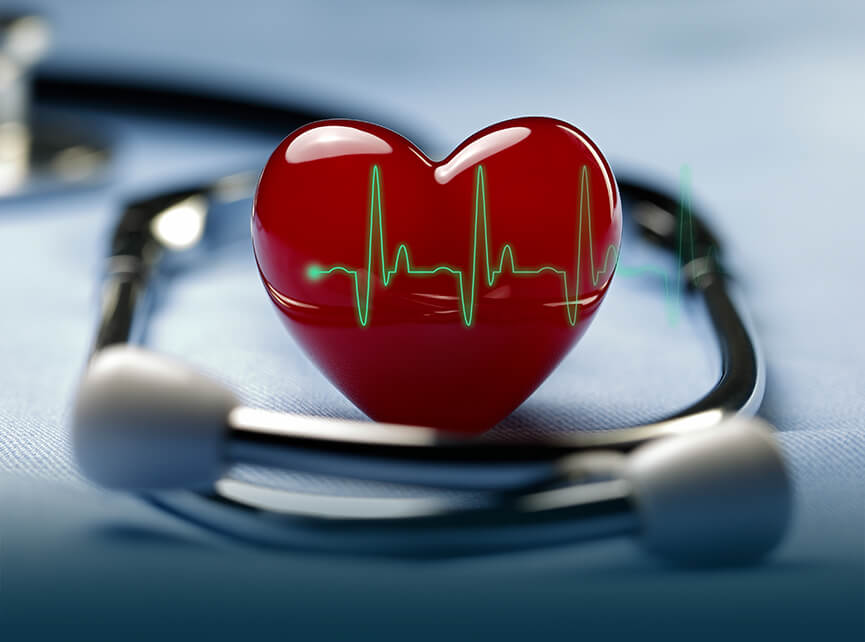Understanding the Importance of Cardiology in Modern Health Care Services
Cardiology plays a critical function in modern-day healthcare, specifically as cardiovascular disease proceeds to be the leading source of death worldwide. Advancements in diagnostics and treatment have transformed patient care, enabling earlier treatments and enhanced end results. The change in the direction of precautionary cardiology empowers individuals to handle their health and wellness proactively. As technology proceeds to evolve, the assimilation of cutting-edge options may better redefine cardiology's influence on public health, triggering a closer exam of emerging patterns and their implications.
The Prevalence of Cardiovascular Disease and Its Influence On Public Wellness
Heart illness continues to be the leading cause of fatality internationally, its influence expands much past specific people to impact public wellness systems and economic situations. The high frequency of heart problem puts a significant stress on medical care resources, demanding raised funding for prevention, treatment, and rehab programs. Public health and wellness campaigns must deal with danger elements such as excessive weight, smoking, and sedentary way of lives, which add greatly to the rising incidence of heart conditions.Moreover, the financial problem connected with heart problem is immense, incorporating not just straight clinical costs however additionally indirect expenses related to lost efficiency and early death. Communities face obstacles in handling these prices, frequently causing disparities in medical care accessibility and results. As the population ages and lifestyle-related risks continue to rise, the urgency for reliable cardiology treatments ends up being paramount. Addressing heart condition is not only a matter of individual wellness however additionally an essential public wellness top priority.
Advances in Heart Diagnostics and Imaging Techniques
Recent developments in cardiac diagnostics and imaging strategies have actually revolutionized the field of cardiology, improving the capability to spot and monitor cardiovascular disease. Methods such as cardiac MRI, CT angiography, and echocardiography have actually come to be significantly sophisticated, supplying comprehensive photos of cardiac frameworks and features. These methods permit the very early identification of problems like coronary artery disease, heart failing, and valvular disorders.Moreover, innovations in non-invasive diagnostics, such as wearable modern technology and remote surveillance gadgets, have actually empowered patients and medical care service providers. These devices promote real-time monitoring of heart rhythms and various other crucial indicators, bring about timely interventions. Additionally, man-made knowledge is being integrated right into imaging evaluation, improving precision and efficiency in medical diagnosis.
Technologies in Treatment Choices for Heart Conditions
Current developments in cardiology have actually brought about substantial developments in treatment alternatives for heart disease. These consist of advanced medical methods that boost step-by-step outcomes and emerging medications that use new avenues for treatment. As the field develops, these innovations play an important duty in enhancing individual treatment and outcomes.
Advanced Surgical Techniques
Innovations in surgical strategies have transformed the landscape of cardiology, supplying new wish for people with heart disease. Minimally intrusive procedures, such as catheter-based interventions, have actually significantly minimized recovery times and medical facility keeps. Methods like robotic-assisted surgery enhance accuracy, enabling cosmetic surgeons to browse intricate anatomical frameworks with greater precision. Improvements in imaging modern technology assist in real-time visualization during procedures, improving outcomes. Transcatheter aortic valve replacement (TAVR) exhibits a breakthrough in dealing with aortic stenosis, allowing shutoff substitute without open-heart surgical treatment. Furthermore, hybrid methods that combine surgical and catheter-based approaches supply customized services for various heart concerns. These innovative medical methods not only enhance person security but likewise increase therapy choices, highlighting the crucial function of innovation in modern-day cardiology methods.
Arising Drugs and Therapies
As the landscape of cardiology continues to progress, emerging treatments and medicines play a pivotal duty in boosting treatment choices for heart disease. Developments such as novel anticoagulants and advanced lipid-lowering agents have actually changed the monitoring of heart diseases, substantially minimizing client morbidity and mortality. Additionally, the development of gene therapies and regenerative medication supplies encouraging avenues for treating problems formerly considered permanent. Scientific trials are constantly disclosing the effectiveness of these treatments, pushing the boundaries of conventional therapies. In addition, the integration of electronic wellness technologies assists in individualized medication, enabling for tailored therapy plans based upon hereditary and lifestyle aspects. Jointly, these developments emphasize the vibrant nature of cardiology, boosting person end results and redefining requirements of care in contemporary health care.
The Duty of Preventive Cardiology in Patient Care
Preventative cardiology plays a necessary duty in client care by concentrating on the recognition of threat elements that add to cardiovascular disease. Via way of living alteration strategies and very early discovery strategies, medical care carriers can properly reduce the incidence of cardio events - Cardiology. This positive strategy not just boosts patient outcomes however additionally advertises long-term health and wellness
Risk Factor Identification
While cardiovascular illness stay a leading reason of morbidity and mortality worldwide, effective risk variable recognition serves as a keystone of preventative cardiology. Identifying threat aspects such as high blood pressure, household, hyperlipidemia, and diabetes mellitus history is necessary for early treatment. Health care specialists utilize various screening techniques to assess these variables, enabling tailored precautionary actions. Furthermore, recognizing a person's way of life choices, such as smoking cigarettes and physical lack of exercise, even more notifies threat evaluations. This comprehensive analysis enables clinicians to create customized care plans focused on mitigating threats. By prioritizing risk factor recognition, medical care systems can improve patient results and reduce the general burden of heart diseases, inevitably contributing to improved public health techniques and resource allotment.
Way Of Life Adjustment Strategies
A plethora of researches highlights the vital role of lifestyle alteration techniques in decreasing heart disease danger. These methods include nutritional modifications, enhanced physical task, cigarette smoking cessation, and weight management. By taking on a heart-healthy diet rich in fruits, veggies, whole grains, and lean healthy proteins, individuals can lower cholesterol levels and blood pressure. Normal exercise strengthens the heart and enhances overall cardio health and wellness. In addition, stopping smoking cigarettes significantly reduces the danger of heart condition and improves recovery prices for those with status quo. Weight monitoring further adds to cardiovascular wellness by reducing other threat elements such as diabetes and high blood pressure. Carrying out these way of living alters not only advertises private wellness however likewise works as a cornerstone of preventive cardiology in client care.
Early Detection Strategies
Way of living modifications greatly add to minimizing heart disease threats, but they are most efficient when coupled with very early detection methods. Precautionary cardiology highlights the value of recognizing potential heart issues prior to they rise into severe conditions. Techniques such as high blood pressure monitoring, cholesterol testing, and advanced imaging technologies like echocardiograms play essential duties in reviewing cardiovascular health. Biomarkers and hereditary testing also boost the precision of early detection, enabling tailored preventative approaches. Regular cardiac danger evaluations encourage health care carriers to interfere proactively, potentially avoiding cardiac arrest and strokes (Cardiology Jupiter). By incorporating these early discovery approaches right into regular treatment, patients can profit from prompt way of life interventions and targeted therapies, ultimately boosting and boosting outcomes high quality of life
Integrating Modern Technology Into Cardiology Practices
As advancements in technology remain to reshape various fields, the combination of cutting-edge devices and systems right into cardiology practices has become necessary for boosting person care and outcomes. Telemedicine platforms permit cardiologists to monitor clients from another location, boosting accessibility to care while reducing the burden on healthcare facilities. Wearable devices, such as smartwatches, enable continuous heart price surveillance, alerting both patients and physicians to possible concerns in real-time. Furthermore, man-made knowledge (AI) is being made use of to assess substantial quantities of cardiac data, assisting in very early medical diagnosis and tailored therapy strategies. Advanced imaging methods, including 3D echocardiography, enhance visualization of heart frameworks, causing a lot more accurate treatments. Digital wellness documents (EHRs) improve patient details administration, guaranteeing that cardiologists have immediate accessibility to vital information. Together, these technical improvements are transforming cardiology, advertising positive management and enhanced wellness results for patients with cardio conditions.
The Significance of Person Education and Interaction
Patient education and involvement play a critical function in the management of cardiovascular wellness. By equipping individuals with expertise regarding their problems, therapy options, and way of life changes, doctor empower individuals to take an active function in their treatment. This aggressive approach can result in enhanced adherence to suggested medications, dietary modifications, and workout programs, ultimately minimizing the threat of complications.Engagement additionally fosters a strong patient-provider connection, motivating open interaction and count on. When people feel informed and included, they are extra most likely to voice concerns and ask questions, which can bring about far better professional end results. In addition, educational resources, such as workshops or electronic systems, can improve understanding and advertise self-management techniques. Overall, prioritizing client education and interaction is necessary for improving cardio wellness, enhancing lifestyle, and minimizing health care expenses related to heart diseases.
Future Fads in Cardiology and Their Possible Influence

Regularly Asked Inquiries
What Way Of Life Changes Can Reduce Heart Condition Danger?
The current question addresses lifestyle adjustments that can substantially minimize cardiovascular disease threat. Cardiologist near me. Taking on a balanced diet regimen, participating in regular physical task, keeping a healthy weight, taking care of anxiety, and avoiding cigarette can significantly boost cardiovascular wellness
Exactly How Can I Recognize Early Indicators of Heart Problems?
Identifying early indicators of heart problems entails monitoring signs and symptoms such as chest discomfort, lack of breath, exhaustion, and irregular heartbeat. Prompt understanding of these indicators can trigger necessary clinical analysis and intervention for far better outcomes.
What Are the Distinctions In Between Cardiologists and Cardiac Surgeons?
The differences in between cardiologists and cardiac specialists depend on their roles; cardiologists primarily handle and detect heart conditions with non-invasive approaches, while heart cosmetic surgeons do procedures to remedy structural heart issues. Each plays a vital, unique function.

Just how Often Should I Obtain My Heart Health And Wellness Checked?
The frequency of heart medical examination differs based upon individual risk variables. Normally, adults need to go through assessments every one to 2 years, while those with status quo might require even more regular assessments as encouraged by health care specialists.
What Function Does Genetics Play in Cardiovascular Disease Danger?
Genes considerably influences cardiovascular disease danger, with domestic patterns suggesting acquired conditions. Details genes can incline individuals to high blood pressure, cholesterol problems, and various other cardiovascular troubles, highlighting the significance of hereditary screening in examining heart health. Heart illness remains the leading cause of fatality worldwide, its influence extends much past individual clients to influence public health and wellness systems and economic situations. Public health efforts have to deal with threat factors such as weight problems, smoking cigarettes, and sedentary way of lives, which add greatly to the increasing occurrence of heart conditions.Moreover, the financial burden connected with heart illness is tremendous, incorporating not only straight medical expenses however additionally indirect expenses related to lost efficiency and early mortality. Precautionary cardiology plays a crucial role in client care by focusing on the recognition of threat variables that add to heart disease. Synthetic intelligence (AI) and machine understanding are boosting diagnostics and patient monitoring, enabling early detection of heart diseases. The differences between cardiologists and cardiac surgeons lie in their roles; cardiologists primarily take care of and detect heart problems why not try these out with non-invasive techniques, while cardiac specialists do surgical procedures to fix structural heart problems.